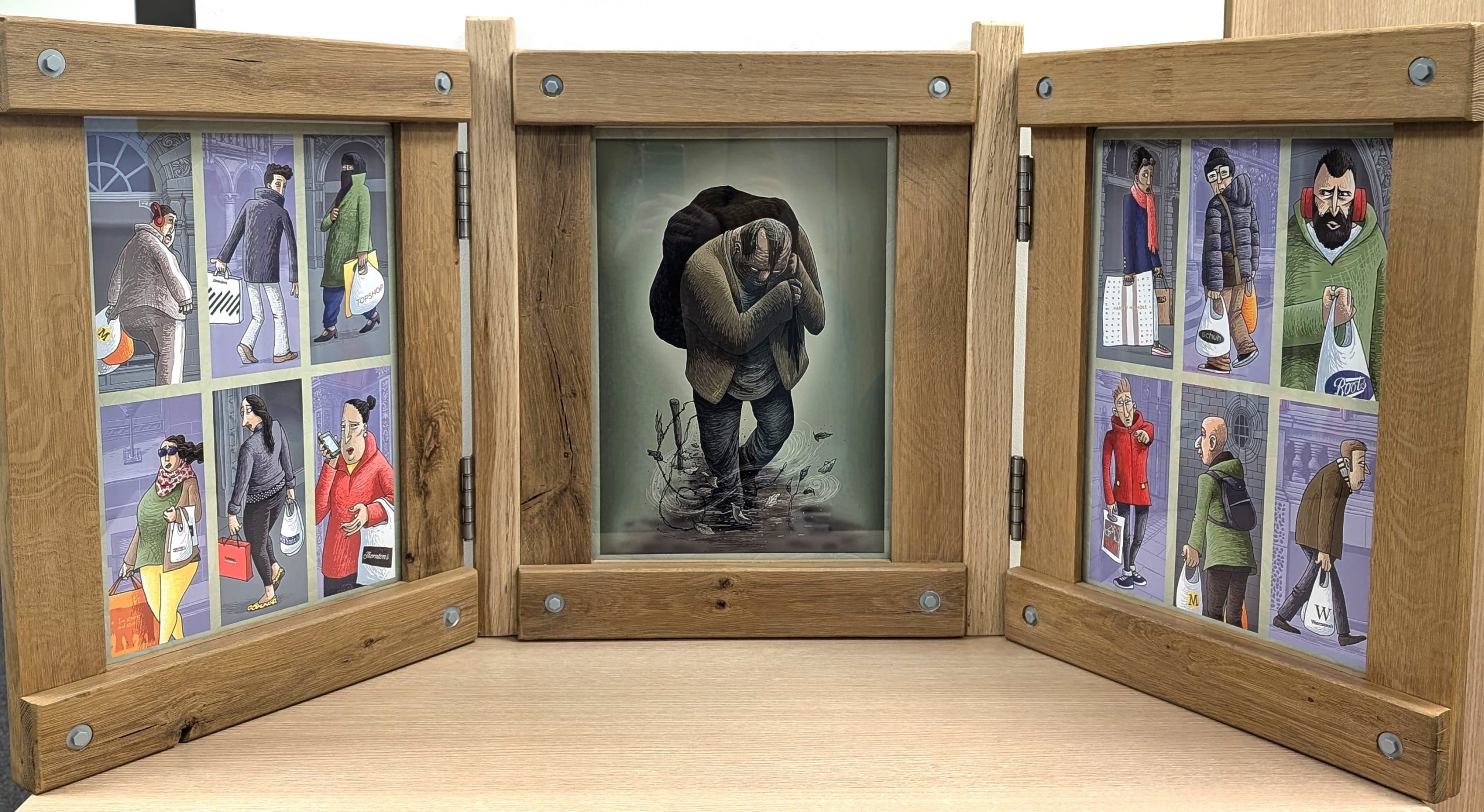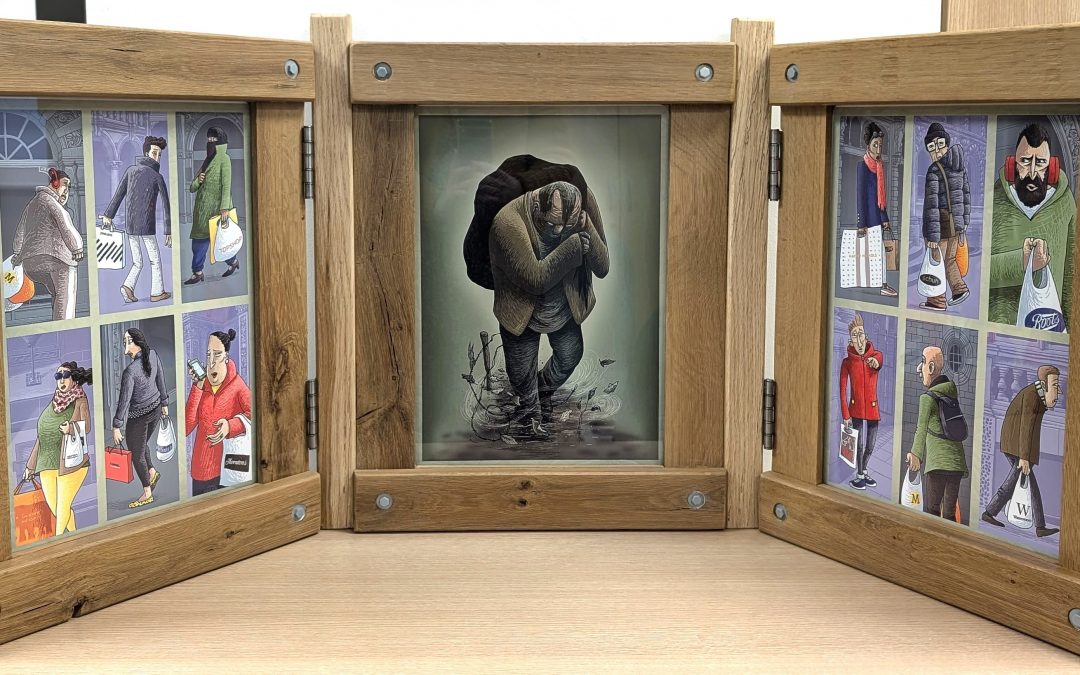Faith at the Margins Lead Paul Coleman reflects on the season of giving, the causes of poverty, and the biblical call to build a just society
Every day when I come through door to the LCI office, I see a piece of artwork, the Bagman of Bagley, a triptych by Leeds-based artist Si Smith.
Yet recently, I saw it for what felt like the first time.

The side panels show shoppers reacting with disdain, dismay and maybe a little guilt to the central figure, who for me represents those on the streets of Leeds. Their bright and neat shopping bags and attire stand in stark contrast to the tired and burdened figure at the centre.
While we see this scene played out throughout the year, it is especially obvious around Christmas.
Over the last week I have had more conversations, read more newspaper articles, blogs and social media posts than at any other time of the year about individuals and families with no place to go or who are struggling to make ends meet over the holiday season. This year the Big Give Christmas Challenge raised over £44.7 million in a single week, as people across the UK responded to the call to share something of the blessings we receive at this time of year.
CEO of Hope into Action, a Christian charity addressing homelessness, Jon Kuhrt suggests in a blog post that:
“It’s probably because we associate Christmas with being at home and being surrounded by family and having fun. The thought of people being desperately cold, alone and vulnerable is the sharpest possible contrast and it engenders widespread sympathy and compassion.“
The gospel reading for the third Sunday of Advent comes from Luke chapter three, and contains a call from John the Baptist to prepare for the coming of the promised Messiah:
And the crowds asked him, “What, then, should we do?” In reply he said to them, “Whoever has two coats must share with anyone who has none, and whoever has food must do likewise.
When we give to charity at Christmas, are we, at least in part, responding to this calling?
In the remainder of the reading from Luke, the crowd, including tax collectors and soldiers, asked John the Baptist what they should do to prepare for the coming Messiah. In addition to telling them to share their possessions, he also challenged those in positions of power to live and act justly. In doing so, John drew attention to some of the causes of poverty and marginalisation in society.
Even tax collectors came to be baptized. “Teacher,” they asked, “what should we do?”
“Don’t collect any more than you are required to,” he told them.
Then some soldiers asked him, “And what should we do?”
He replied, “Don’t extort money and don’t accuse people falsely—be content with your pay.”
Giving from the abundance of Christmas does help to alleviate some of the struggles faced by those at the margins.
Yet we should remember that the compassion, love and hope we find and often demonstrate at Christmas should not disappear with the New Year – and should not be limited to just alleviating the effects of poverty.
We are also called to challenge systems that prop up the greed of the rich and exploit vulnerable communities.
As we move into 2025, LCI will be continuing to explore what it means for the Church to be both prophet and provider. How can we as Christians meet the needs of those at the margins, while also calling for a more just society in which people are not forced into poverty in the first place?
If you would like to be part of these conversations at LCI, contact Paul on [email protected]

